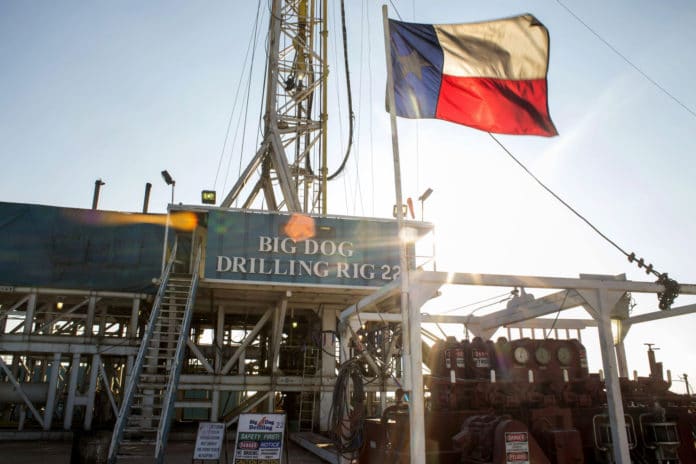The shale revolution that enriched North Texas before oil prices plummeted may never regain its peak momentum, according to at least one industry observer.
“When are we getting back to $100 a barrel? My answer to that is we’re not,” said Ed Ireland, executive director of the Barnett Shale Energy Education Council in Fort Worth and associate professor of energy and economics at Texas Christian University.
Speaking Feb. 19 at the Seventh Annual Northeast Tarrant Transportation Summit in Hurst, Ireland described an energy industry facing an oversupply of oil and natural gas that’s pleased motorists but sent stock prices plummeting. The climate is especially worrisome considering that Texas transportation projects depend on funding from two propositions tied to oil and gas drilling.
Voters prioritized better roads and the ability to accommodate a growing motorist population by approving Proposition 1 in 2014 and Proposition 7 in 2015. The former constitutional amendment sends half of the oil and gas production tax revenue previously directed to the state’s rainy day fund to the State Highway Fund for non-tolled roadways. Those dollars, also known as the severance tax, promise the State Highway Fund $1.1 billion in the current fiscal year, $594 million in fiscal 2017 and $740 million in fiscal 2018, with the state comptroller projecting the latter two amounts based on collections from years prior to 2017 and 2018, respectively.
As for Proposition 7, the measure promises $2.5 billion of annual state sales tax transferred to the State Highway Fund upon exceeding a $28 billion floor. While low oil prices have caused some companies to downsize staff and operations, they actually have benefited the petrochemical industry, which Ireland said has caused an economic stimulus.
“Overall, I think Texas is going to be fine but there is going to be a period where some tax revenue is going to be lower than expected,” Ireland said.
Sharing that outlook is Victor Vandergriff, a longtime Arlington auto dealer and attorney currently serving as a commissioner on the Texas Transportation Commission.
“Proposition 7 will give us a good opportunity to reach $2.5 billion in fiscal 2018 and another $500 million in fiscal 2020,” said Vandergriff, predicting that will occur when the state fund exceeds the $28 billion floor, which he expects to happen in May or June 2018. “It won’t happen until then, we think,” Vandergriff said.
“The good news is that we get reserves from the federal government to set up for right-of-way utility acquisitions and relocations. I think we’ll be a be in a good position to advance projects in 2018,” Vandergriff said.
Fueling that ability will be the state’s untapped oil and natural gas resources.
“Texas has a lot of shale,” Ireland said. “There’s no reason why Texas can’t lead the United States to be the largest oil and gas producer in the world.”
North Tarrant Express construction continues
Motorists dreading the daily slog from downtown to far North Fort Worth have some relief on the horizon as Interstate 35W construction continues. According to Robert Hinkle, director of corporate affairs with NTE Mobility Partners LLC — comprising Ferrovial Agroman US. Corp. and Cintra US, among other companies — work on the $1.4 billion project continues to progress, with Phase 1 expected to open in October 2016 and phase two in 2018.
For the segment between downtown and the Interstate 820 interchange (also known as segment 3A), the project is 40 percent complete and all right-of-way acquired for construction. Motorists should be aware that the direct connector from eastbound Loop 820 to northbound I-35W will become a right-hand exit, Hinkle emphasized.
They can also expect a break in construction on March 24-28 for Easter, and April 6-11 for Texas Motor Speedway activity.






